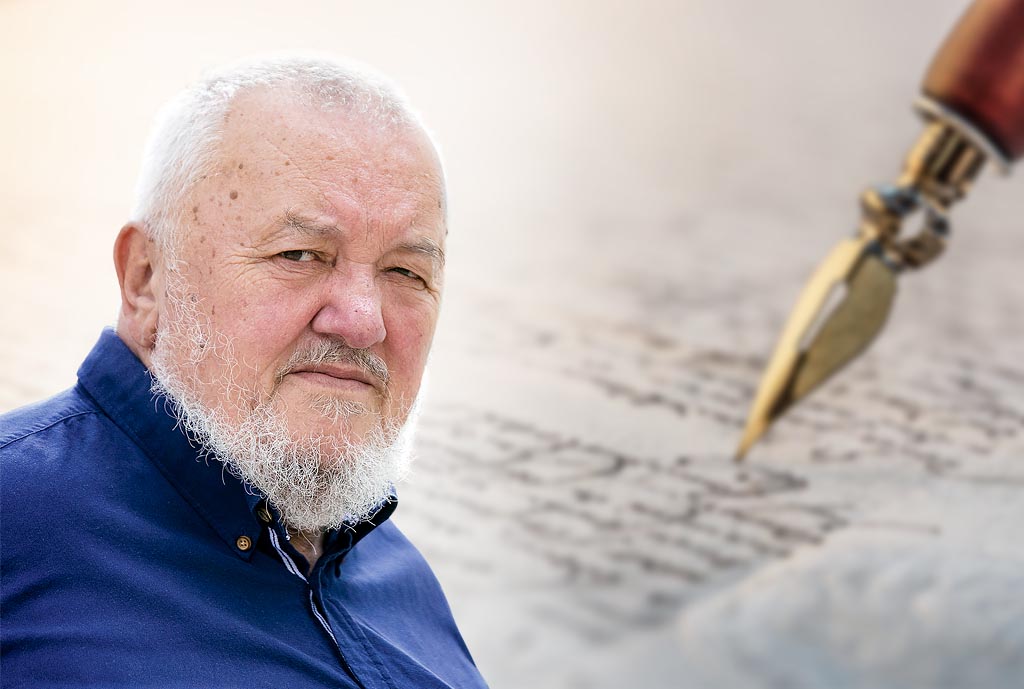By: Dr. Stane Granda
A fear is sweeping through Slovenia – a fear of Janšism.
All the forces of Kučan’s Slovenia
have united in a hysterical
campaign against this fear.
A paraphrase of the Communist Manifesto is one of the best descriptions of the current Slovenian political situation. Some claim that a more accurate description is the one asserting that the country is ruled by those who escaped from a psychiatric hospital. This is, of course, offensive and must be entirely and resolutely rejected. Patients generally recover. Unfortunately, politicians do not. They are as solid as rock. Granite! Hopeless cases! It is because of them that elections were invented. Their “eternity” can be a catastrophe for the nation or its citizens.
Politicians are a failed, botched type of statesman. Even a blind hen occasionally finds a grain, so we very rarely find among them above-average individuals. As a rule, they are more harmful than beneficial to the state. Luckily, in fortunate countries, a professional civil service exists to neutralise their “brilliant” ideas. The problem with great statesmen is that under their shadow, no one else succeeds. Worse still, within one country, there is room for only one – both physically and politically. Thus, the elderly and enfeebled must step aside in time. If they cannot recognise this need, they are not statesmen – at best, they are “Teflon” politicians.
Slovenians have never lacked politicians throughout history. To the literati and certain clergymen led by Majar, Slomšek, and Krek, I bow deeply and sincerely. Statesmen, however, are rare. One of the first modern examples may be sensed in Žiga Zois, for rejecting the Illyrian Provinces. Another would be the largely unknown Dr Matija Dolenc in 1848, and then, until Dr Anton Korošec – whom I would never be a supporter of – clear identification becomes difficult. Edvard Kardelj was merely a “teacher”. This is why he yearned for immortality. History will not overlook Boris Kidrič and Stane Kavčič. Neither of them, however, had the potential of Dr Lojze Ude, who had the virtues of a statesman.
Looking back a century from now, attention will settle on Kučan and Janša. On the former for resisting the greatest achievement in Slovenian history so fervently, and on the latter for being willing to sacrifice his life for it. There is no other explanation for his suffering.
Peterle and some others claim that Kučan acted like a statesman at Brioni in July 1991. If only it were true! Kučan, who, via Ribičič, belonged to Maček’s faction, first drew serious attention when he, as he put it, “sawed off” Kavčič. Then he went into hiding under Popit, only to depose him later. He was the first to recognise the danger posed by Janša and obstructed him at the ZSMS Congress in Krško in April 1986. Two years later, he allowed him to be imprisoned. The trial of the Four that same year brought Kučan his first major and long-term defeat, one he has never acknowledged. Since then, he and Janša have been locked in a war to the death.
Despite his exceptional ambitions and efforts, Kučan is not a statesman. He is merely an exceptional politician. His great advantage lies in his ability to attach himself to those wiser than he, such as Zdenko Roter, the Hribar couple, Niko Toš, and others. For this reason, he is a “Teflon” politician – in the eyes of the naïve and of women. Neither the independent Slovenian state nor democracy, the prerequisite for such a state, were ever his intimate options. He invested everything into ridiculing democracy with the help of a genteel conservative party. He nearly succeeded – if not for a Dolenjc with a typical Gorenjska surname synonymous with bees. Not by coincidence! He defends himself, stings, even under the threat of death.
Since Depala Vas in 1994, the boxing gloves have been off. He threw him into prison; the Constitutional Court freed him – for now! The Trenta Affair proves that Kučan does not give up. He is already reviving the arms trade affair, but this one will backfire on him.
Janšism was not created by Janša but is a Kučanite creation. The term was chosen for democrats who never wish to identify with any individual, or who are disturbed by Janša due to his character flaws or for other reasons. It did not emerge all at once but continuously takes on new forms and meanings, especially under Golob’s government, whose sole programme, bond, and drive was anti-Janšism.
The division between Janšism and anti-Janšism emerged with the May Declaration of 1989, opposed by the Statement for Peace and Coexistence, crafted by the Party. This triggered the last great division among Slovenians, promising to replace the one from 1945. It is continually deepening. There exists Janša’s SDS, which is not identical to Janšism. Similarly, Logar’s party, the Democrats, is said to be distinct. In the broadest sense, particularly concerning those who repeatedly use Janšism as an insult, it represents a mental alliance of supporters of an independent democratic Slovenia – a state they refuse to allow to be abused by those for whom it was never an intimate option. They reject falsifying history and refuse to accept the narrative that the communists won independence during World War II. More than they love Janša or adhere to Janšism – which does not exist – they reject totalitarianism. They are not a party or an organisation. They are a consciousness, a belief. They are simply democratic Slovenians. This is their strength and their indomitability.

